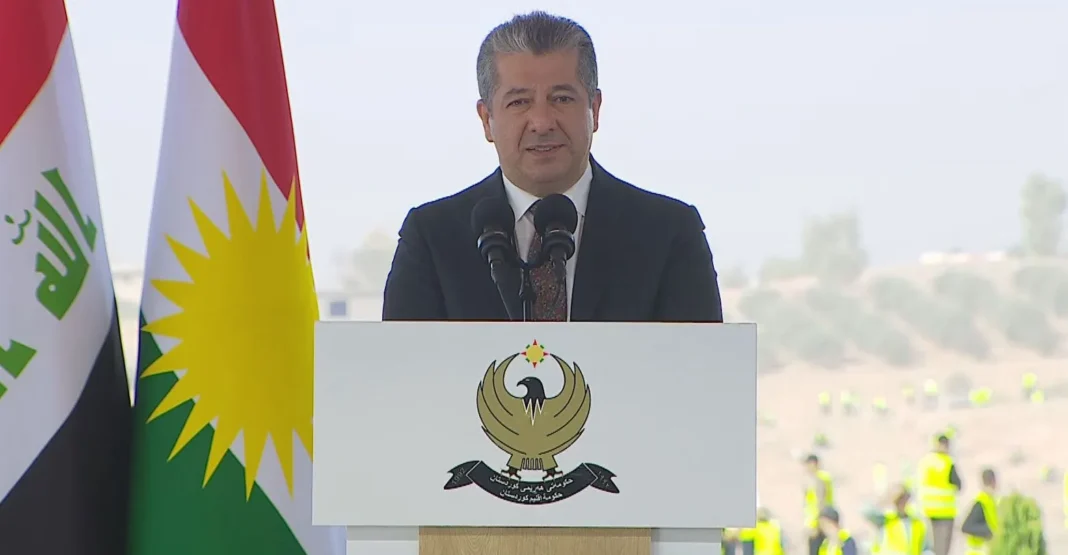Erbil, Kurdistan Region – Kurdistan Region Prime Minister Masrour Barzani officially launched the Erbil Green Belt. He planted the first tree to mark the start of the project. The initiative will plant seven million olive and pistachio trees. The belt will form a circular zone beyond the city’s 150-meter road, stretching two kilometers wide. This green ring will surround Erbil.
To begin with, Masrour Barzani called the initiative “historically significant” for current and future generations. Moreover, he said olive trees reflect the region’s ancient agricultural heritage. “The return of olive trees to these areas, which is their historical source, has great meaning,” he added.
He explained that the Green Belt will create a cleaner and healthier environment for Erbil residents. Furthermore, Barzani said his administration will continue reconstruction efforts. “We, too, will gently and slowly continue to rebuild Kurdistan,” he noted. He thanked Greek experts and private companies supporting the project. Olive cultivation will protect the environment and provide economic returns.
The Ministry of Municipalities will retain the land. Meanwhile, private companies will benefit from the commercial value of future agricultural products. Additionally, the project will create employment and training opportunities. “All of this will be a great effort to create job opportunities for our youth,” Barzani explained. Young people will learn to manage the belt and gain agricultural expertise. This approach reduces reliance on a single income source.
Governor Omed Khoshnaw announced the project on September 17. The government will build ten water retention ponds to support cultivation. Consequently, Khoshnaw said the belt could cut carbon emissions by 140,000 to 210,000 tons of CO₂ annually. He also noted that the project will lower temperatures, reduce desertification, and curb dust storms.
The initiative complements plans to expand urban green spaces. For example, five new parks are under development, covering nearly 200 acres. Rashkin Park will have 16,000 trees. The park near the 120-meter road will have 8,000 trees. The Nazdar neighborhood park will feature 6,000 trees. The Life neighborhood park will have 5,000 trees. Construction near the 150-meter road intersection is ongoing.
Currently, Erbil has 26 major parks, 204 small gardens, 209 forests, 163 central islands, and 109 fountains. As a result, rapid urban growth and traffic have strained the city’s environment. These projects aim to prioritize sustainable urban development.
Overall, environmental advocates praised the initiative. However, they warned that authorities must ensure long-term maintenance and enforce regulations for success.





